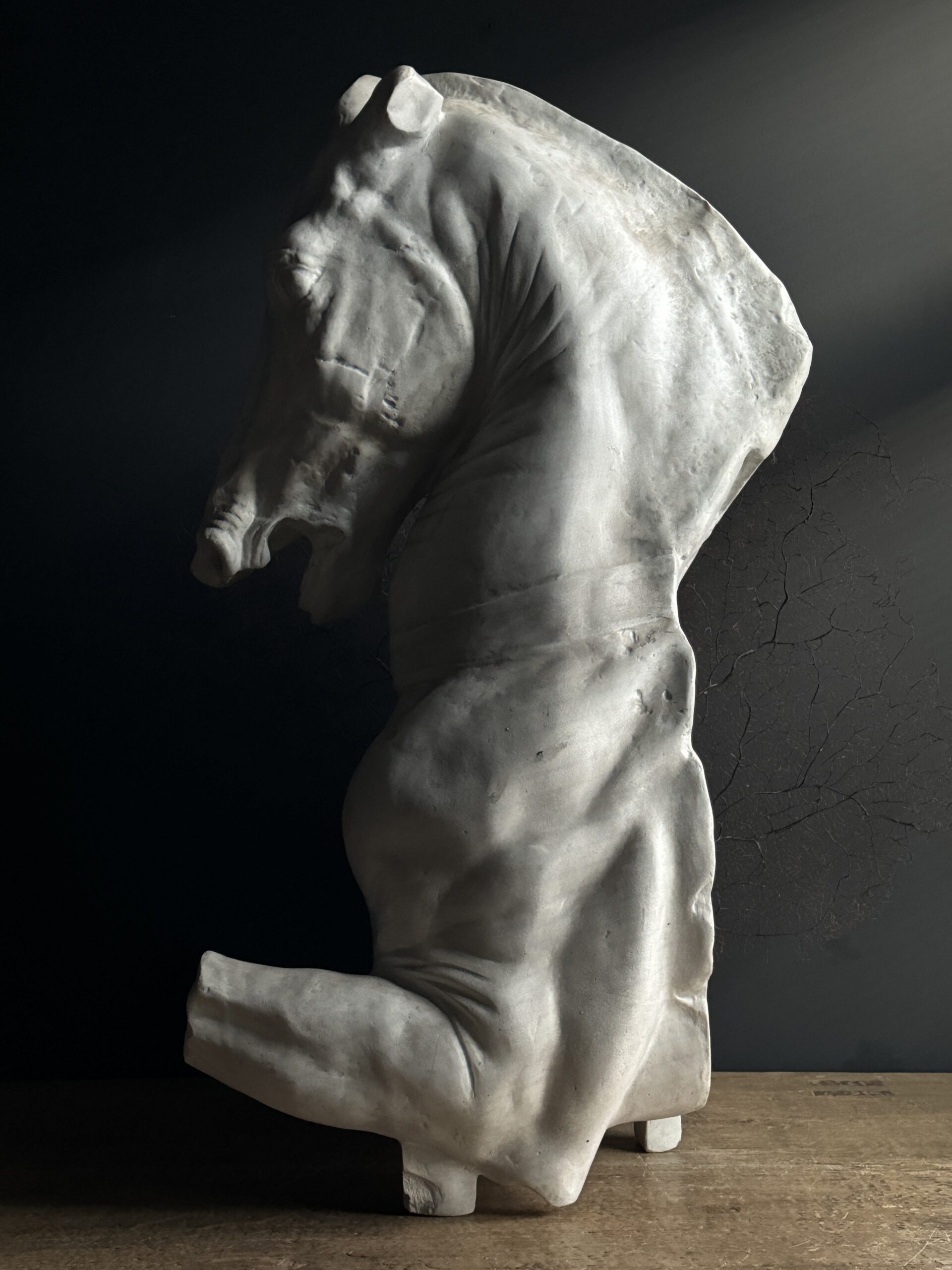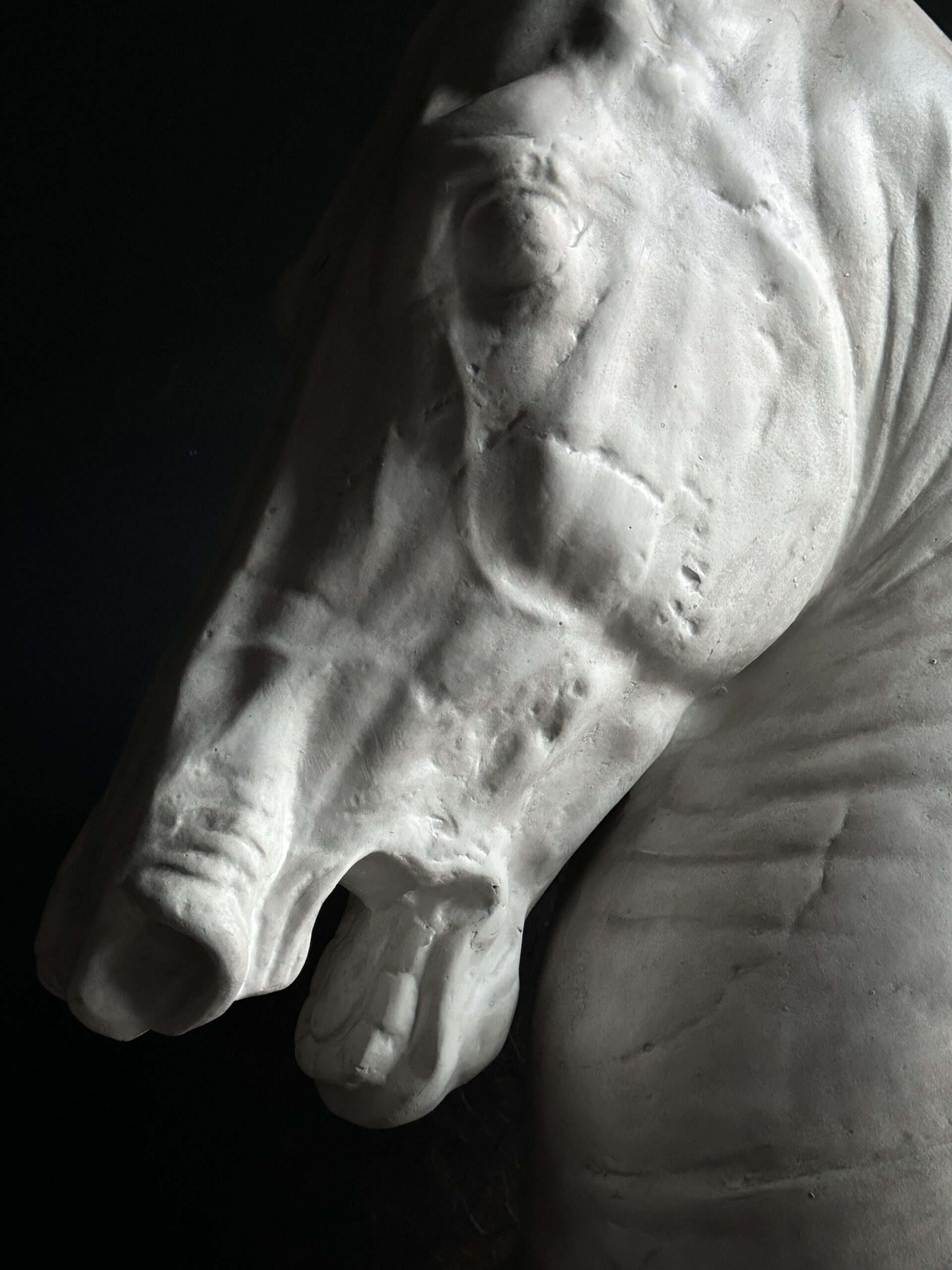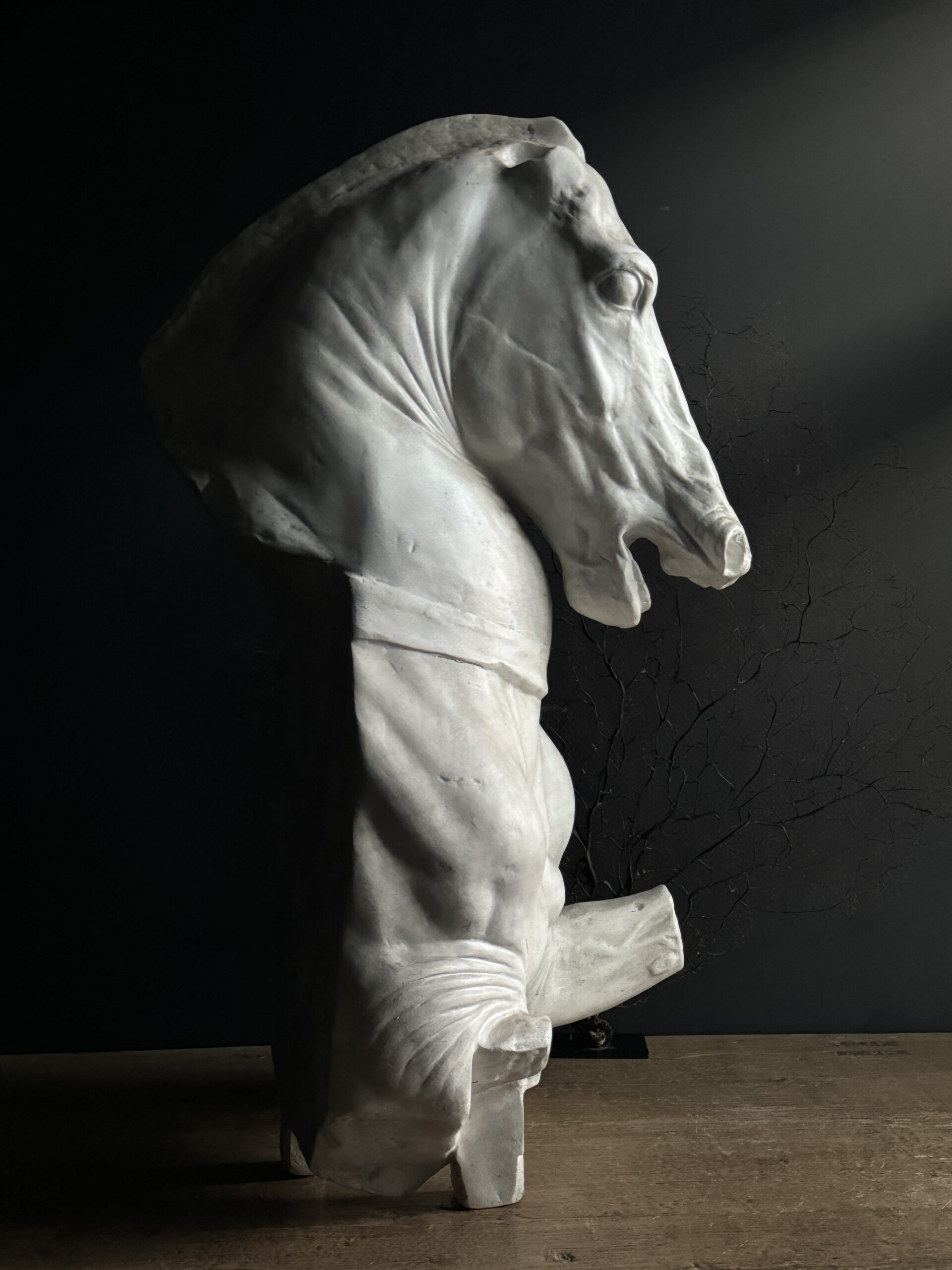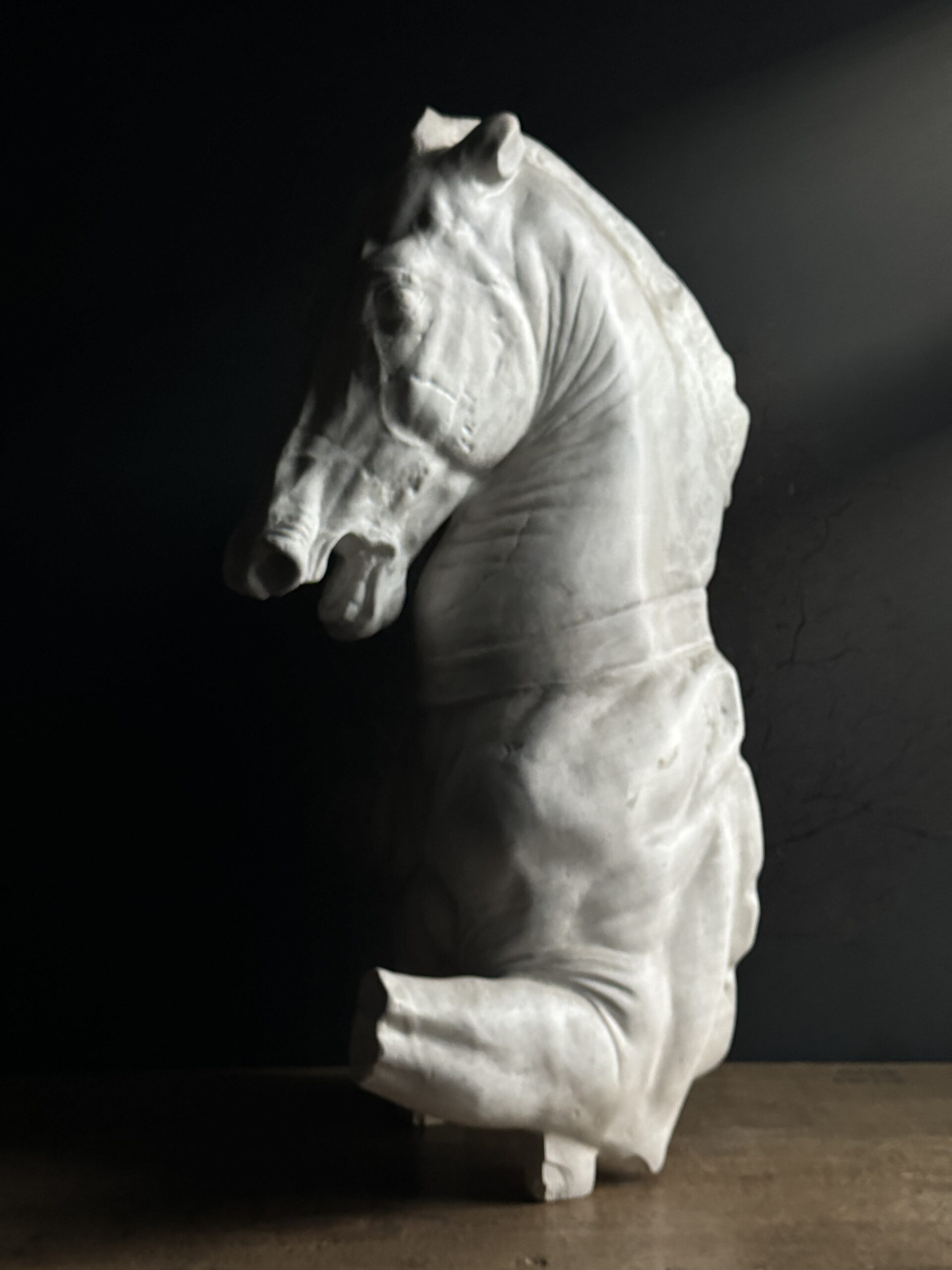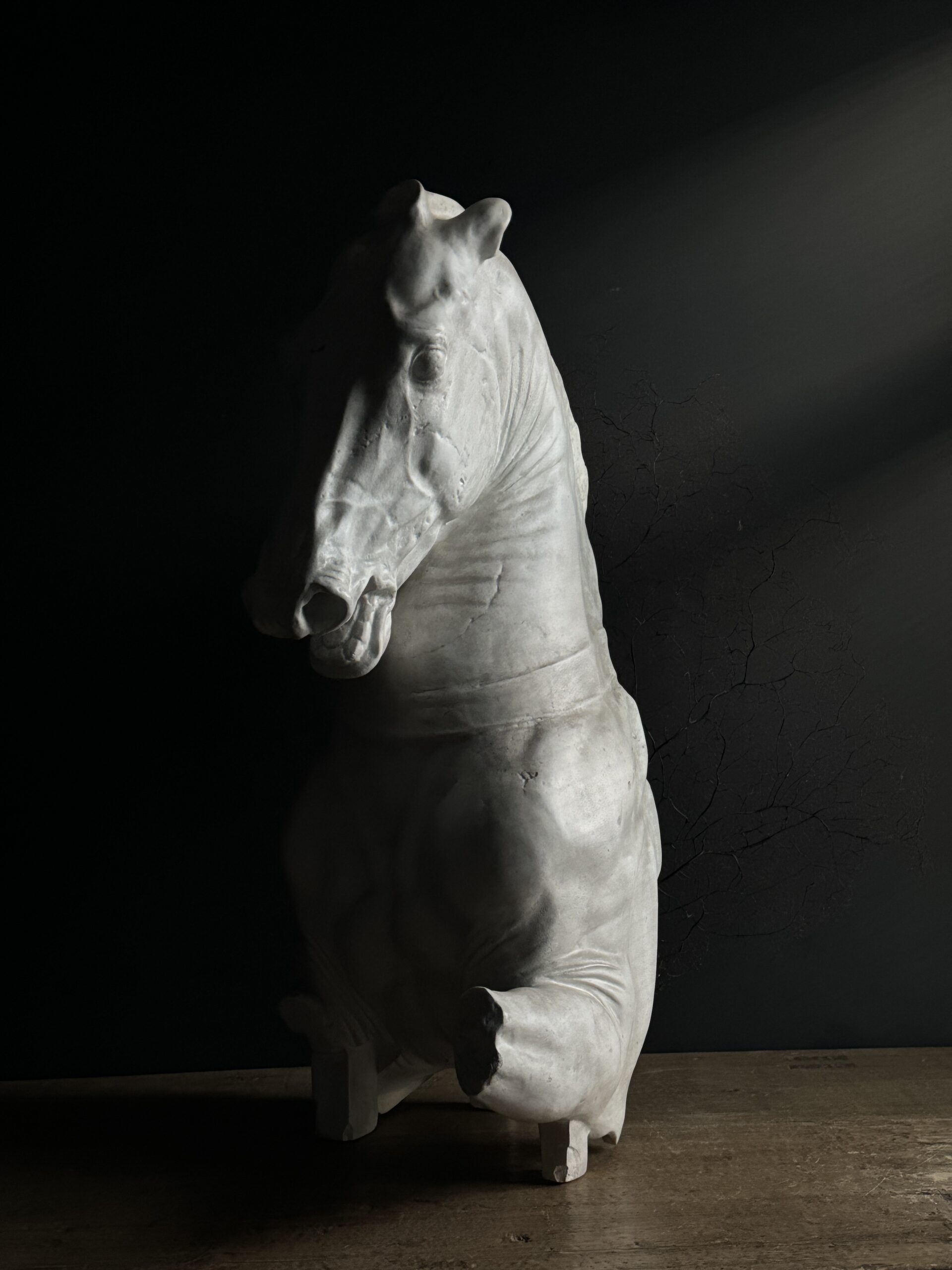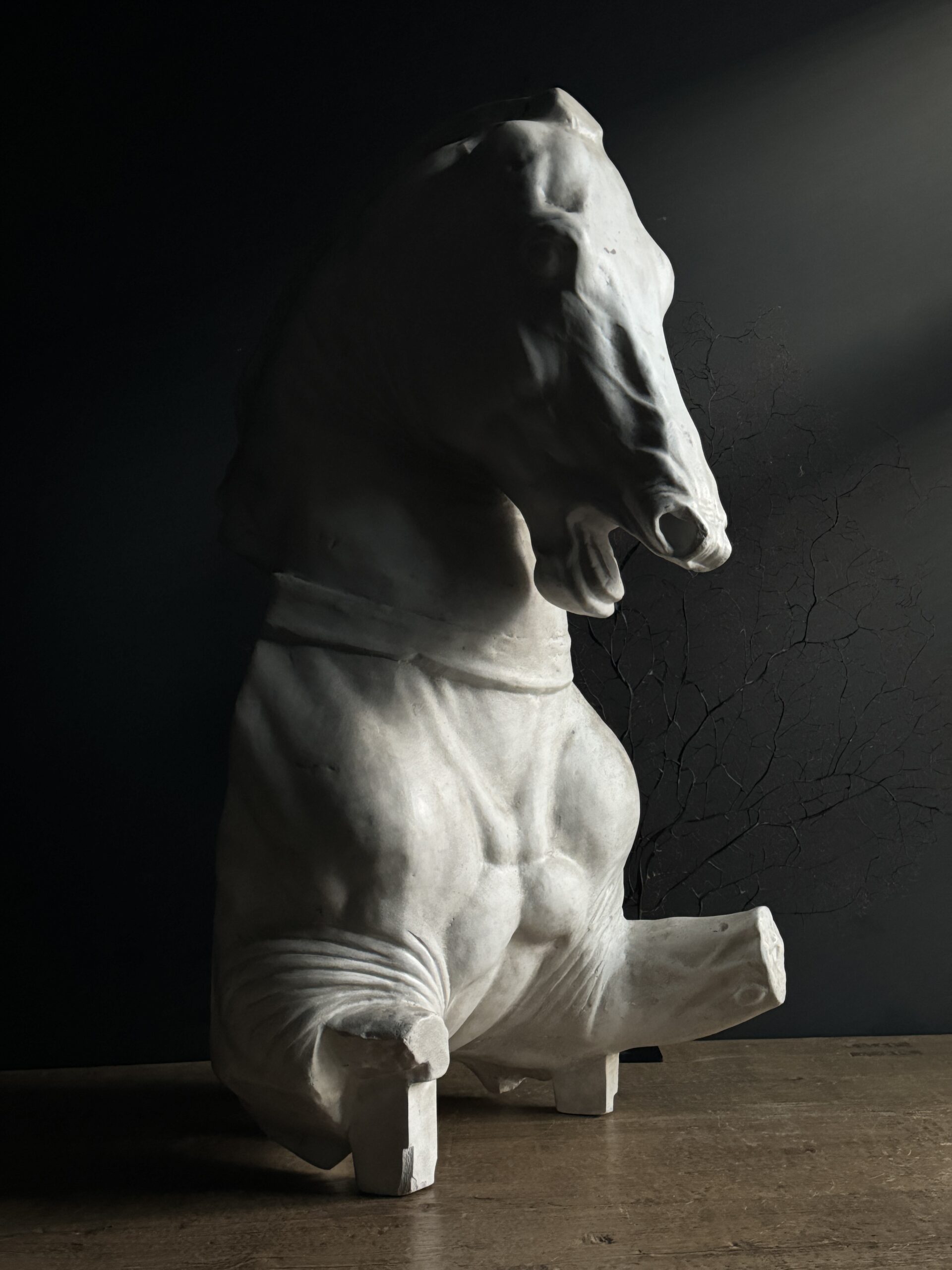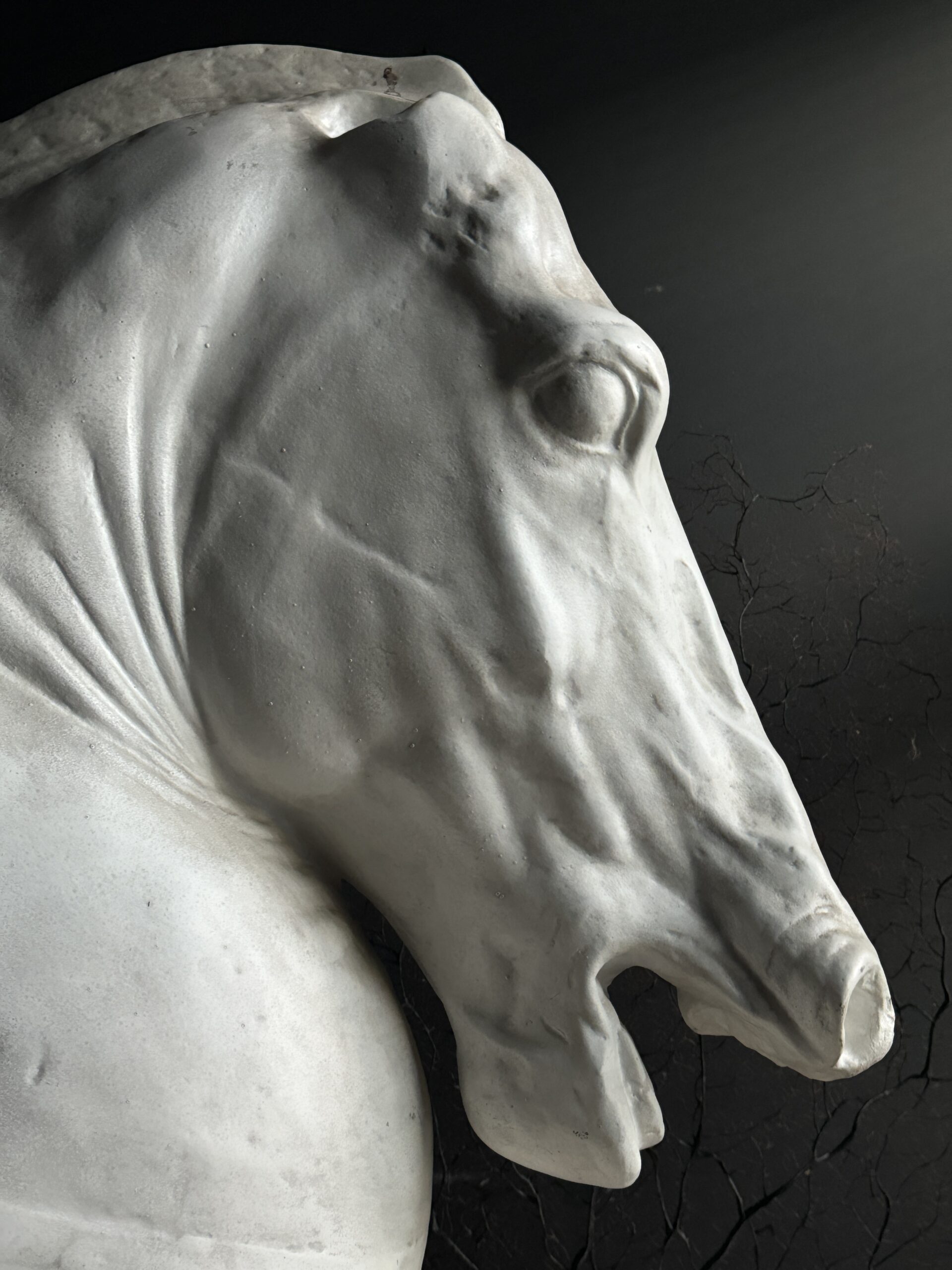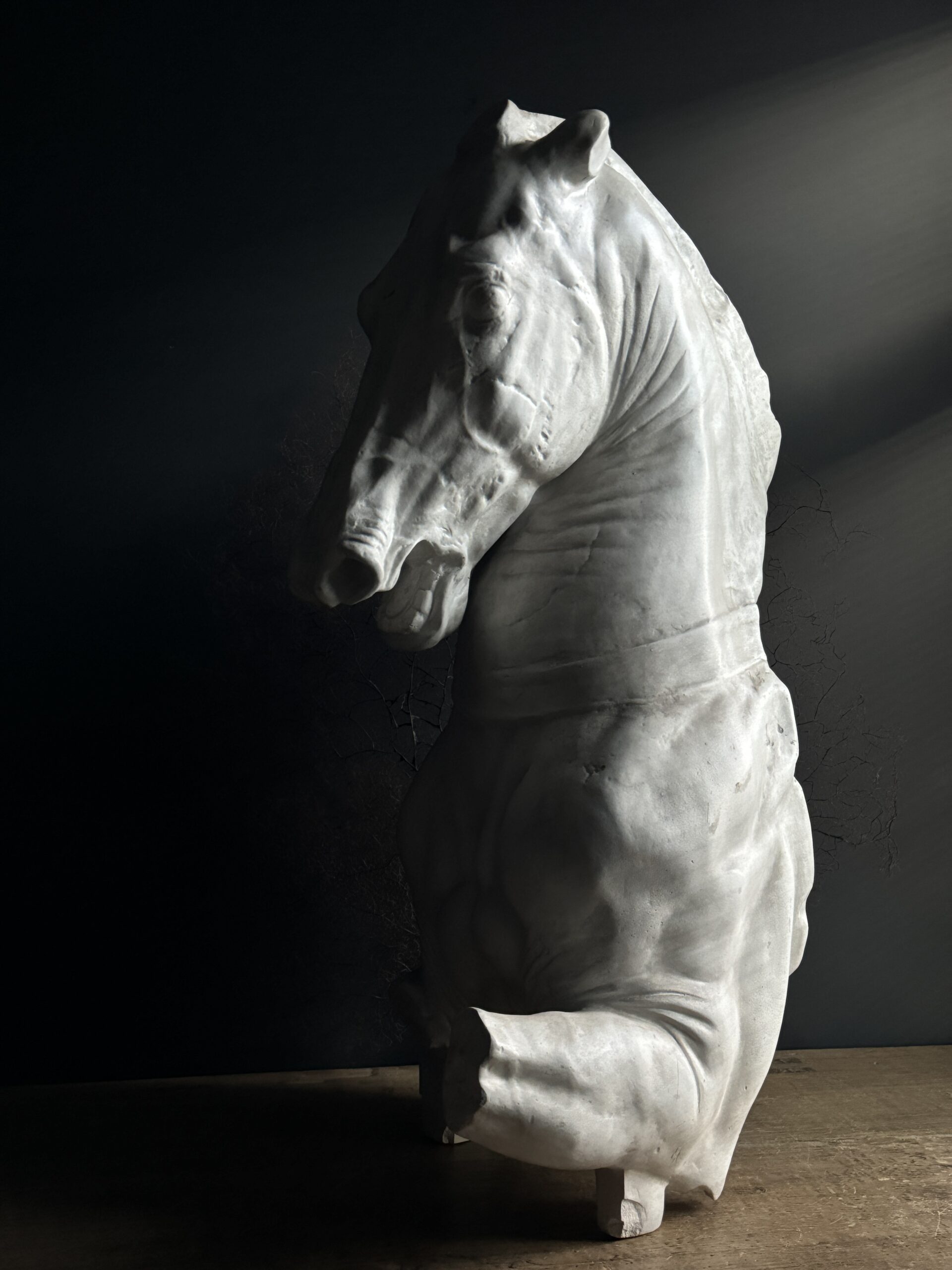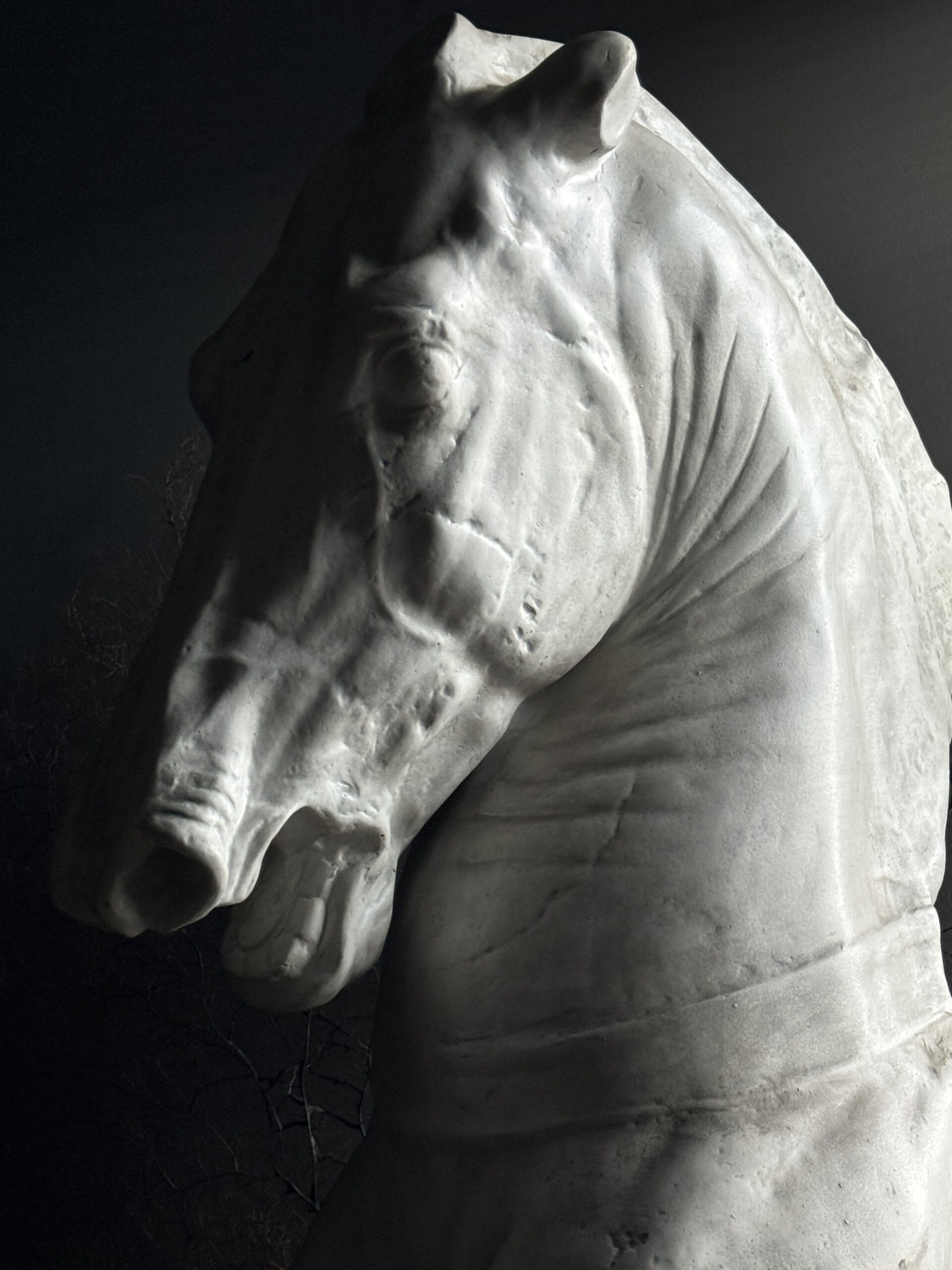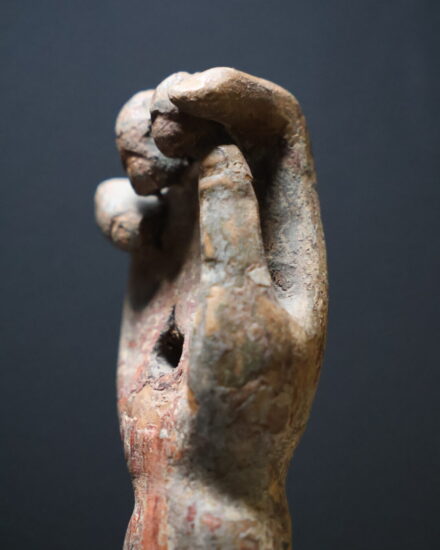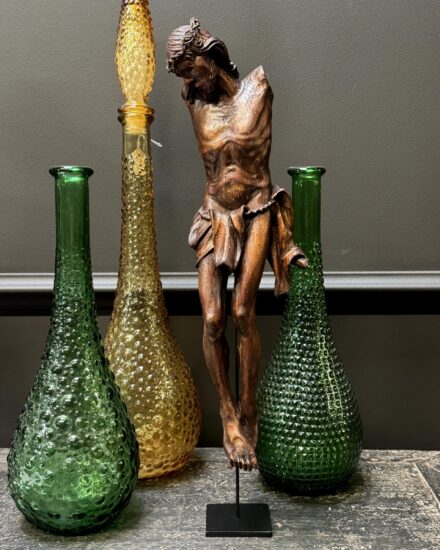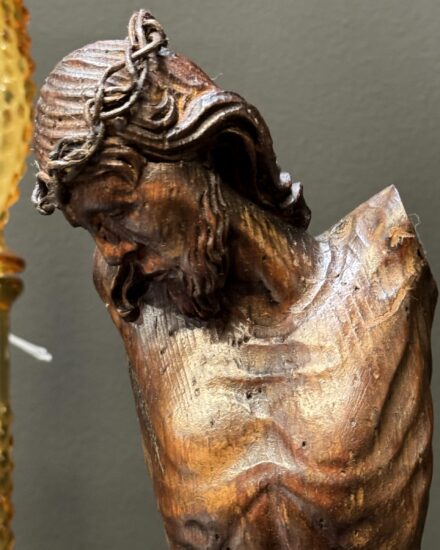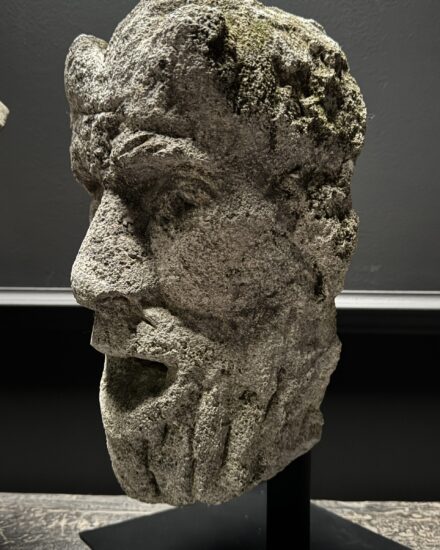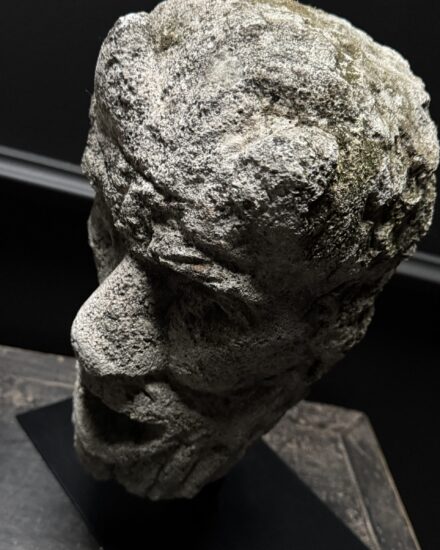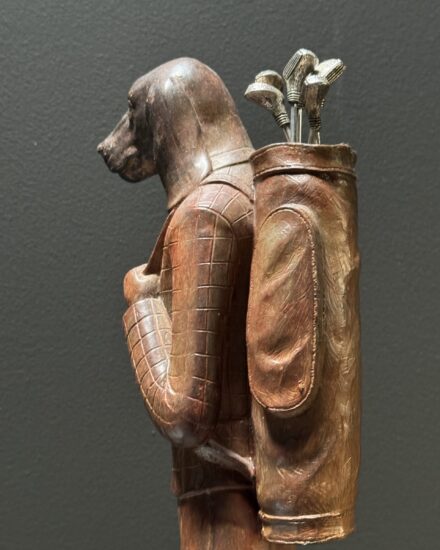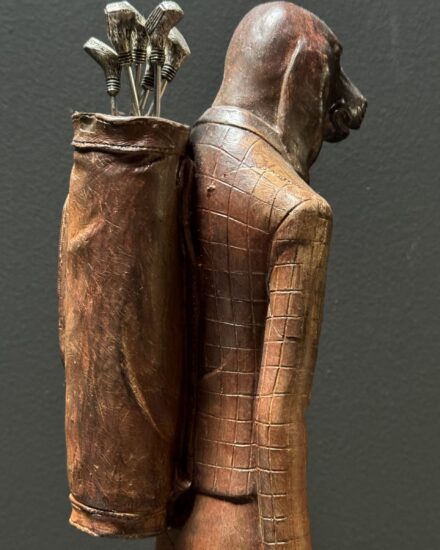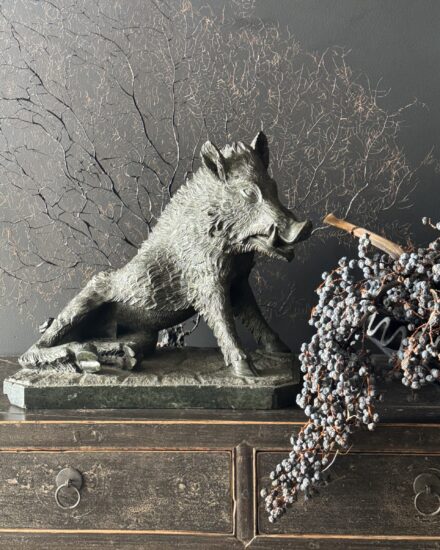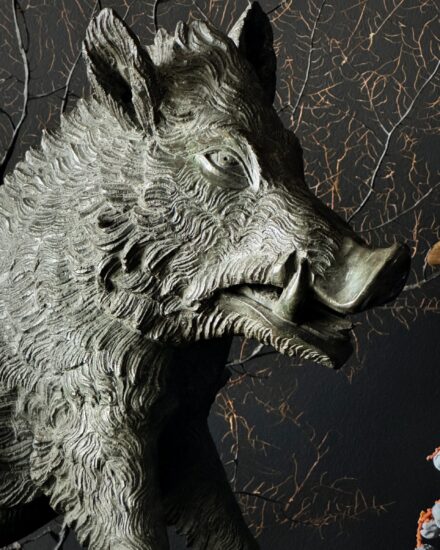Very beautiful reproduction from the last century of Phidias'Horse.
Zeer mooie reproductie uit de vorige eeuw van Phidias' Paard.
Fragment of a horse inspired by classical marbles, such as those of the Parthenon (sometimes called the Elgin Marbles). These ancient sculptures come from the Parthenon temple in Athens, dating from 438-432 BC, and include figures of gods, scenes of cavalcades, and other elements that originally adorned the pediments and friezes of this emblematic monument.
They are attributed to Phidias and his team, renowned Greek artists.The horse in question is particularly reminiscent of the horse's head associated with the goddess Selene, which is one of the items on display at the British Museum.
These fragments were transported to the United Kingdom in the early 19th century by Lord Elgin, which generated controversy regarding their acquisition and eventual return to Greece. The sculpture is also inspired by the Horses of the Parthenon, particularly those which decorate the reliefs of the Panathenaeum procession. These horses, carved from marble in the 5th century BC, are a perfect example of how ancient Greek art depicted animal power with astonishing realism.
The horses on the frieze are depicted in a dynamic posture, often in motion, their muscles tense and their forms balanced, illustrating a perfect mastery of equine anatomy. Similarly, contemporary sculpture seems to seek to capture the same raw energy and fluidity of movement, while respecting the classical proportions of the animal. The fine details, notably the horsehair, neck muscles and limbs, refer to the classical Greek ideal where the horse symbolized beauty, strength and harmony at the same time.
Antique Horse statue
€2.395,00
- Length: 65 cm
- Depth: 44 cm
- Height: 111 cm
Request For More Information
